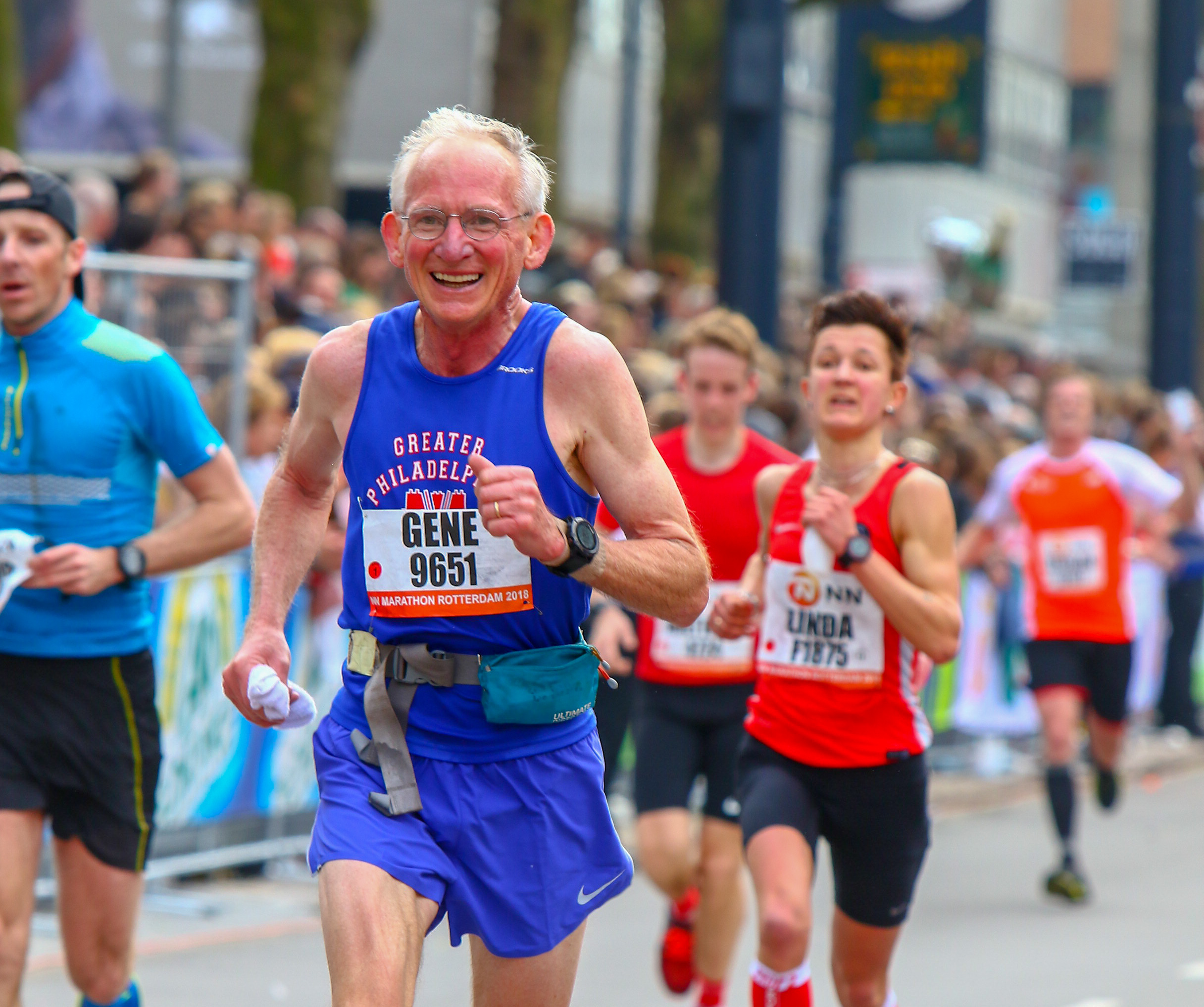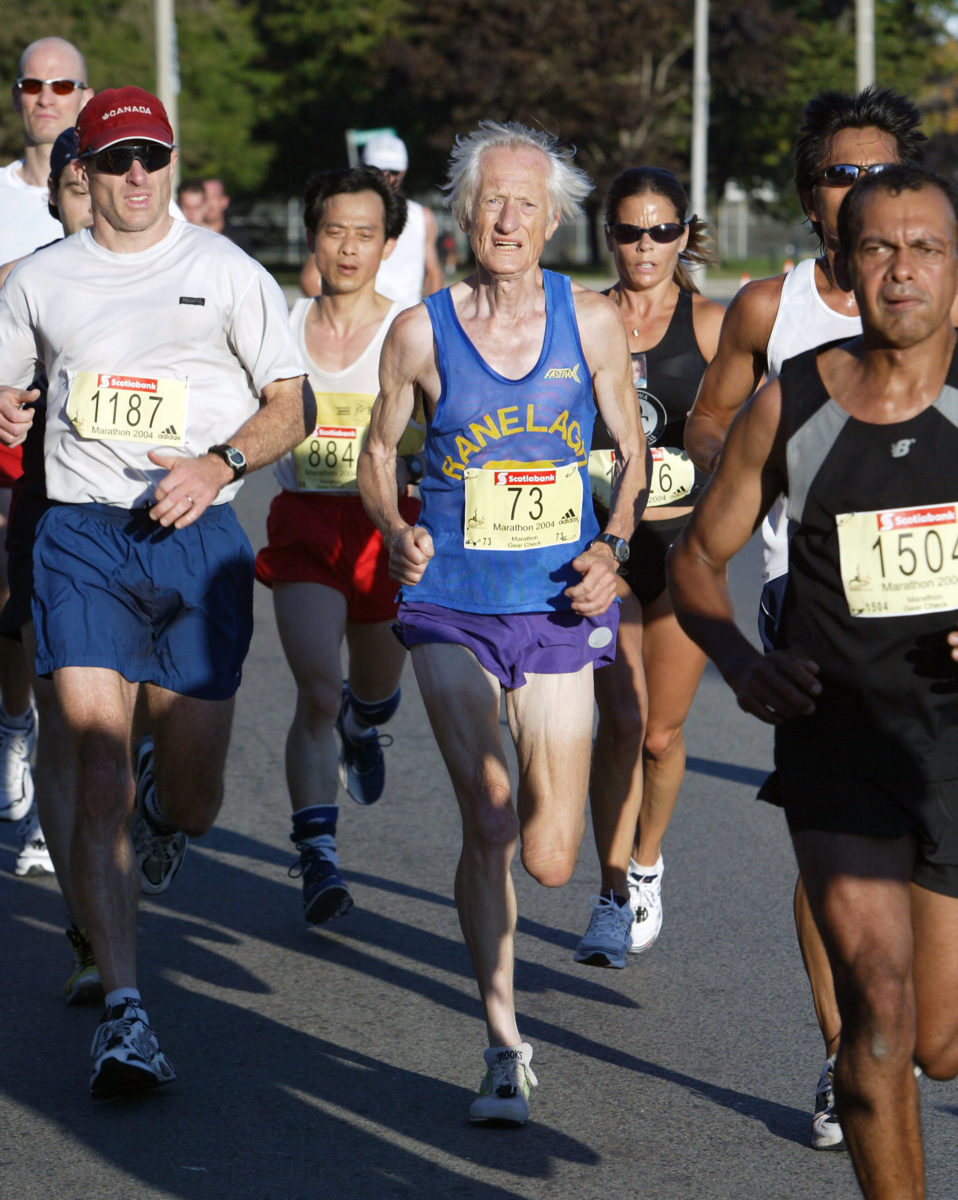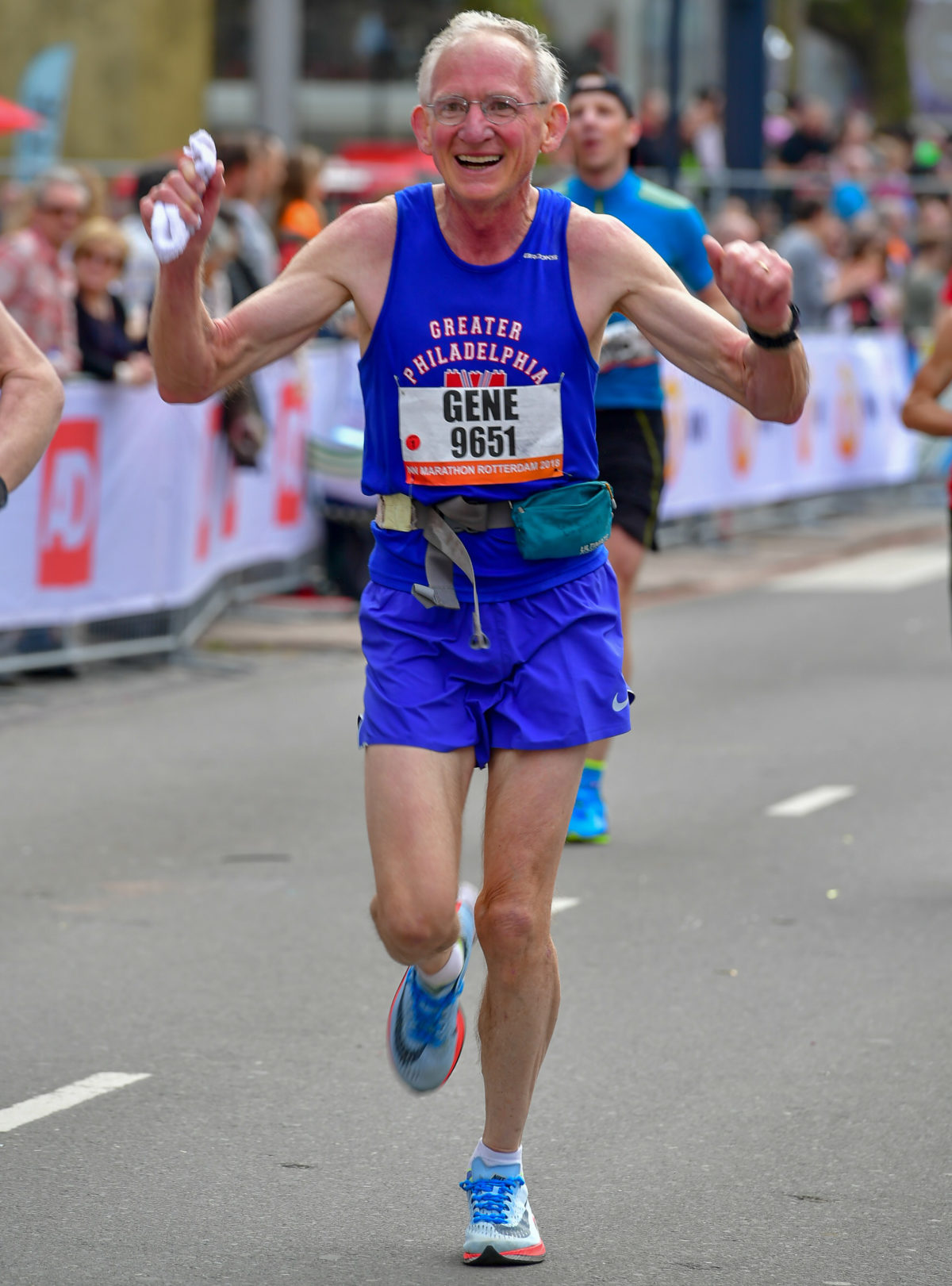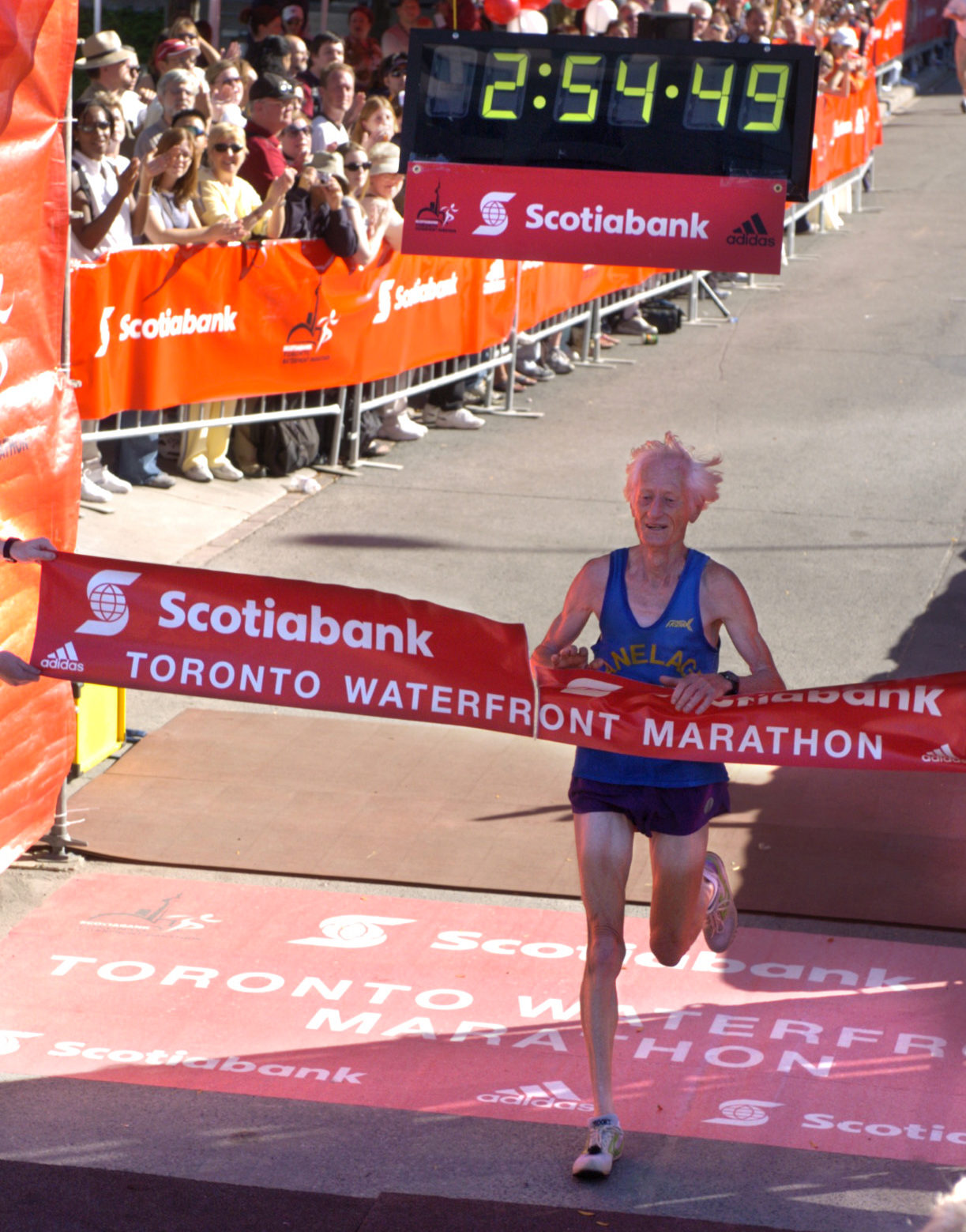
Photo: Marathon-Photos.com.
It’s been two years since the late Ed Whitlock turned heads globally at the 2016 Scotiabank Toronto Waterfront Marathon. That year, the Canadian running icon became the oldest man ever to break four hours in the marathon, running 3:56:34 when he was 85.

Photo: Canada Running Series.
In 2018, come Oct. 21, an American runner has a chance to honour Whitlock’s legacy on the streets of Toronto. Though the legendary runner’s prestige and reverence will be safe on this, and every other, STWM weekend, his records might not be.
Meet Gene Dykes
Dykes is a 70-year-old retired computer programmer. He holds a PhD in biochemistry and has been married for 36 years. He has two daughters, and became a grandfather earlier this month. And, since April, he is a 2:57:43 marathoner (from Rotterdam). The Ohio-native and current Philadelphia resident is in training to surpass that mark, and hopes to hone in on Whitlock’s 70-74 age group world record of 2:54:48, which, incredibly, the Canadian set when he was 73. (Whitlock often noted that that race was his greatest ever.)

Photo: Marathon-Photos.com.
“I remember five years ago at the STWM,” says Dykes, ”Ed saying that this record, his 70-74 age group record, would likely stand the longest of all his records. Little did either of us know that someone in that room would have a chance at it in the future.”
Dykes’ prowess as of late has inevitably triggered comparisons to Whitlock, but upon closer observation, the two runners could not be more different. Whitlock’s prowess on the roads was predated by an impressive track pedigree – he broke 2:00 in the 800m in his 40s. Contrarily, Dykes’ success couldn’t have been predicted. He ran in high school, only to switch to the triple jump and hurdles in university, and did not seriously pick up the marathon again until he was 58.
To stand a chance at running on Whitlock’s level, Dykes carries a tool in his arsenal other than natural speed: he is durable. The septuagenarian has already raced 23 times in 2018, and plans to race about 20 more times before the end of the calendar year. He runs everything from track races to ultras, and trains for the marathon yearly. “Physically, I think I am luckier than most,” says Dykes. “I rarely get injured.” Mentally, he thrives on racing. “I ran my 2:57 in Rotterdam, and then raced the next 12 weekends. I just don’t get tired of it.” (For the record, Dykes did a 50-miler (80K) a few days before chatting with CRS.)
But, that durability did not always permit Dykes to perform at the level he wanted, and after years of sub-optimal performances in his 50s and 60s, he sought out some help in training. “It was actually at the Toronto race five years ago – I ran 3:29 and missed by PR by 13 minutes – that I decided to make a change,” he explains. “I got myself a coach, and it transformed the way I train. He prescribed the proper workouts for me – I was running too long and slow. My recovery runs now are faster than the workout runs I used to do. Also, I run more now, and I run tired, and that’s how I improve.” Dykes admits that having a coach also holds him accountable. “No way will I cut a workout short or skip it altogether when someone expects me to do it,” he says.
With a coach, he keeps training simple, but varied. “Most weeks consist of an easy recovery run, two general aerobic runs of eight to 16 miles (13-26K) at around 7-8 minutes per mile (4:20-4:58 per kilometre), a long run, and a lactic threshold run. But my coach makes sure to make those runs differ somehow to keep things interesting,” he says.
The new training plan helps Dykes enter the 2018 Scotiabank Toronto Waterfront Marathon as one of the headliners. The septuagenarian understands that much responsibility will come with being compared to Whitlock in the latter’s own backyard, but the added pressure does not faze him. “I think it would be neat to break the record,” says Dykes. “To me, however, breaking the record would not be nearly as interesting as training for it. Having a goal like in the back of your mind constantly that gives me motivation for training. That being said, records are meant to be broken, so why should I not be the one to break it?”
Even if Dykes were to run faster than 2:54:48 at the Scotiabank Toronto Waterfront Marathon, Whitlock’s record of being the oldest runner to have ever broken 3:00 in the marathon would be safe for a few more years. At 74, Whitlock ran 2:58:40.

Photo: Canada Running Series.
It is far too early to call Dykes the true counterpart of Whitlock – he is only 70 – but to hold the two in constant comparison is to miss the point. “I am not going there to compete against anybody but that guy from last year – that old guy in the mirror,” affirms Dykes. “He’s my most fierce competitor.”
Catch Dykes on the start line of the 2018 Scotiabank Toronto Waterfront Marathon, which is being held in conjunction with the 2018 World Masters Athletics Marathon Championships. Register today and see you on the start line on Oct. 21.







